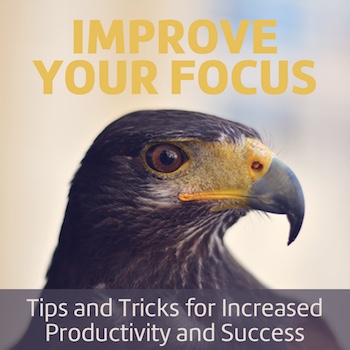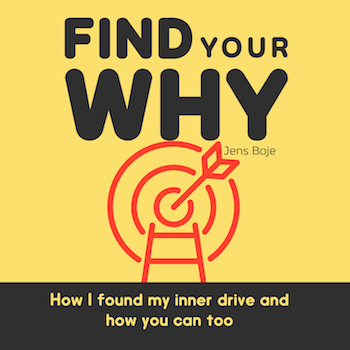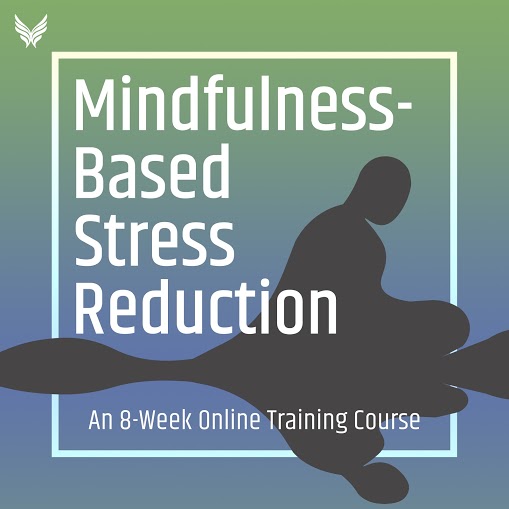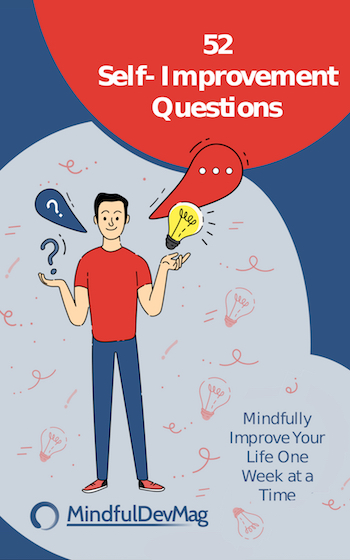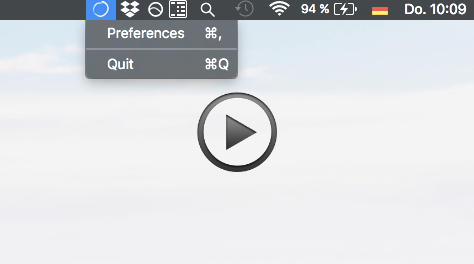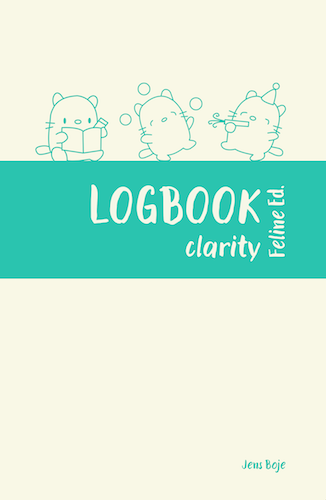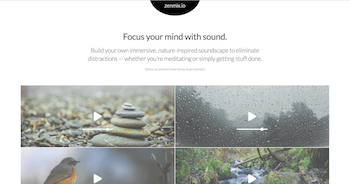How to Detect and Eliminate Bad Habits with Mindfulness
We all have a few bad habits (maybe more than what we’d like to admit!)..
It could be anything from - snoozing the alarm button, again and again, instead of getting up on time, spending hours scrolling through our social media profiles to binge eating junk food every other night!
Habits form your success or failure
While these bad habits are pretty easy to detect, there are many bad habits whose existence you won’t be able to pinpoint at once, especially when they are your bad habits and not somebody else’s. So, obviously the first step towards getting rid of your bad habits is to figure out what kind of bad habits you are dealing with, in the first place. Only once that’s sorted, you’ll be able to come up with some kind of a plan to get rid of them.
“Learning something new about your own psyche, how your mind works and what is it that motivates or demotivates you..” Sounds familiar? Isn’t it?
Yes, we are talking about mindfulness here. Mindfulness meditation is a perfect tool that you can use in order to detect your own limitations and fears. Here’s how you can use mindfulness to detect and then eliminate your bad habits -
What are Habits?
First of all, let’s understand what are habits. Our habits (both good and bad) are our certain behaviors which we’ve performed so frequently, that they’ve become a part of our autonomic nervous system. Or in other words, your body doesn’t even have to think consciously while performing these behaviors since they’ve become automatic in nature.
Since your habits have become a part of your personality, sometimes it’s hard to pinpoint their existence. What’s even harder is to figure out what triggers these habits in you. For example, if you have the habit of biting your nails, you might not realize how frequently you do it or what triggers you to do it.
We developed a habit tracker to help people just like you to make habits stick. The beginning of forming a new habit is the most critical time and only when you stick to a great method you will succeed. Checkout the Habit Tracker.
And that’s where mindfulness comes into the picture. One aspect of mindfulness meditation is - that it makes you say hello to your own limitations or flaws. When you come face to face with your flaws and you see for yourself how compulsive your actions are and what kind of damage they can cause in the long run, your urges or your triggers tend to fall on their own. Not entirely, but to some extent. And that’s a great start!
The Science Behind It
Psychiatrists believe that our brains follow certain patterns. As far as habits are concerned, they follow the pattern of - trigger, action, and reward. A habit gets triggered by a cue which could be a specific emotional state (for example - when you feel sad you tend to over-eat), time of the day, a particular location, or the company of people you are in direct contact with. This trigger demands an action (for example - when you meet an old friend who loves eating junk food, you get an urge to eat junk food with him/her). And after performing the action you get the reward (in this case, the reward is the temporary release of dopamine in your system).
This mechanism also works subconsciously, i.e., you don’t even realize this is happening. This is a danger you should be aware of because many apps and social media tools are exploiting these techniques. They want you to stay on their sites and scroll endlessly or do other shit. Every time you get bombarded with notifications, stupid rewards, and such things, those methods are at play.
Now, mindfulness works on two levels - firstly, it makes you realize that what you are doing is not good for your wellbeing and secondly, it helps you quit by making you more patient and calm. So, when you practice mindfulness you’ll be able to recognize these patterns with an enhanced sense of clarity and at the same time, it’ll make you more equipped to handle your triggers.
Practicing mindfulness activates your prefrontal cortex, part of your brain which is associated with decision making and planning. The same area can shrink your amygdala, which is responsible for instilling negative emotions like fear into your system.
The Objective is to Dig Deeper
Our habits can also be explained as rigid, obsessive psychological patterns that are associated with the emotional and cognitive domains of our mind. And in order to break these patterns, we need to dig deeper.
Most of the time we have no clue about the real reasons why we are stuck with certain bad habits. That’s because we’ve not really tried to figure out the root cause of these habits. Here’s a simple example - if you want to analyze the root cause of your bad habit of getting late to work every day, here’s what you need to ask yourself -
“Why I’m always late to work?” When you’ll spend some time with this question you’ll realize that you get late because you struggle to wake up on time every morning.
Mindfulness is an effective tool to explore your own psyche
So, now ask yourself, “Why do I struggle to wake up on time?” Again, spend time with this question and you’ll realize that’s because you have difficulty sleeping or sleeping well at night.
So, the next question would be, “Why I am unable to sleep well at night?” The answer could be - because you tend to eat ‘too much’ just before you go to bed and that makes you feel uneasy and bloated.
What you thought is a bad habit turned out to be a symptom or a consequence of some completely unrelated problem. The point here is - that you need to dig deeper and find the root cause of your habits.
Since mindfulness involves observing your own thoughts and emotions while maintaining a spirit of curiosity, it can be used as a very effective tool to explore your own psyche. It allows you to see those familiar situations or cues that trigger your bad habits in a completely new light.
So, next time you catch yourself being triggered by something, relax and take a few deep breaths. Then, ask yourself what is the real reason that I’m being triggered like that? Ask yourself questions like - Why do I want to smoke? Why do I want to eat that piece of cake? Why the idea of working on this project is making me anxious? Why I was unable to meet the deadline? Why do I want to skip my yoga class? And observe what surfaces up.
Breathing is life. Without it, we will die. Yet, besides the obvious, it is also fundamentally connected to our central nervous system. And thus, we can control our nervous system when we control our breathing. You can learn more in this free article.
The answer you’ll get will most probably be associated with some past trauma or some difficult situation you might be facing at the moment or maybe it could be your anxiety expressing itself via your unconscious, compulsive habit. This awareness will help you decide the course of action you need to take in order to tackle your compulsions. As a follow up you could ask yourself - What can I do differently to avoid such triggers? Or is there an alternative approach to handle this situation?
When you’ll do this regularly, you’ll see that a number of options will start unfolding before you. You’ll know what to do in any given moment to avoid slipping into that automatic mode of thinking or doing something. You’ll know whether you need to go out for a walk or you need to listen to some peppy music. Maybe you need to call a friend or sit down and meditate some more!
Stress and Bad Habits
So, now you are doing great. You’ve been successfully avoiding your triggers and have managed to consciously control your urges when suddenly you are faced with a really tricky situation. Something happened in your life (personal or professional) because of which your stress levels started soaring and before you knew it, you fell back and started embracing your old ‘bad habit’ again..
Chronic stress is a disaster for your health and will kill you eventually.
While it’s easy to change your habits under normal circumstances when a stressful situation arises, the task becomes incredibly challenging. So, it’s really important that you practice being mindful when you are feeling anxious or stressed-out. Because these are the times when the probability of you falling back into the trap is at its highest.
Be aware of your urges or triggers when you are faced with a stressful situation. Tell yourself that these are petty tricks your mind is trying to play with you. Be kind and patient with yourself during this time but don’t allow yourself to fall back. Repeatedly tell yourself that it’s an empty high and you DO NOT want this in reality.
Replace Your Bad Habits with Good Habits
This is the easiest way of dealing with your bad habits. What your mind wants is some kind of automaticity. So, if you’ll learn how to replace your bad compulsions with some really wonderful ‘good habits’, what’s the harm? Mindfulness teaches you how to replace your negative emotions and feelings like anger, frustration or fear with pleasant emotions like peacefulness or compassion.
You can use these same principles while battling your bad habits. For example - if you want to lose weight and for that, you need to reduce your sugar consumption, replace your evening chocolate cravings with a tall glass of pomegranate and blueberry juice. It will take some time but you’ll see that slowly you’ll simply forget all those chocolates and cakes and puddings and will fall in love with your new juice recipe.
Motivation is what gets you started.
Habit is what keeps you going.
You can replace any of your bad habits like that. How much time it’ll take for this transformation to successfully occur depends on how deeply ingrained your old habits are. Yes, you might feel that the process is a little slow and taxing, but if you could maintain the consistency, the results are guaranteed. During the process even if you went off track and started repeating the old patterns, mindfulness would help you get back on track. It’ll keep you aware that you’ve indeed taken a step back and it’ll motivate you not to repeat those old mistakes. Since you’ll be practicing mindfulness you’ll know first hand what progress tastes like. You’ll crave that instead of whatever it was that was making you feel horrible. Just remember not to be too harsh on yourself. A couple of falls along the way are fine. Just pick yourself up and start again. What you need here is perseverance…
Conclusion
Mindfulness is literally the opposite of automaticity. It urges you to explore your own consciousness - your thoughts, feelings, emotions, and actions. With the help of mindfulness, you’ll be able to fight all your automatic nature, be it your bad habits or your compulsiveness nature of keep thinking about your past mistakes.
Use the principles of mindfulness and replace your bad habits with amazing new habits like the habit of reading books, watching inspirational videos online, creating something new every week, or getting up early and going for a run.
[jk]
